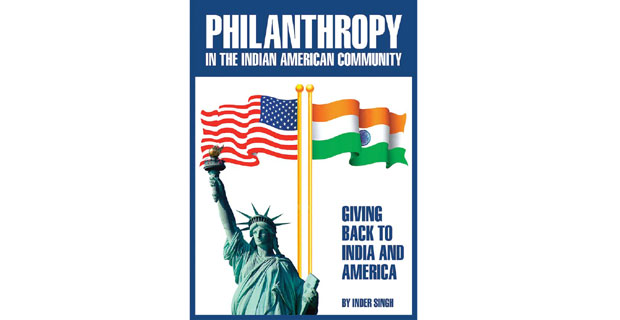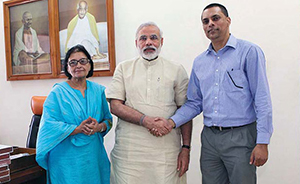Philanthropy in the Indian American Community Giving Back to India and America
Philanthropy is an act of contributing personal wealth, goods, time, talent, and expertise for charitable or similar causes to promote ...
Forbes’ 2018 list shows the United States to be the home of the greatest number of billionaires, with 585. Jeff Bezos ($112 B), Bill gates ($90 B), and Warren Buffet ($84 B) are among the top three wealthiest Americans. Ten Indian American billionaires are also in the Forbes list. Miami-based RakeshGangwal, Co-founder of IndiGo, a low-cost domestic airline in India, is the richest Indian American with a net worth of $3.3 billion. He was chairman of US Airways before starting IndiGo. RomeshWadhwani of Silicon Valley is the second richest Indian American with a net worth of $ 3.1 billion. VinodKhosla with a net worth of $2.3 billion is the third-richest among Indian Americans. None of the Indian Americans are in the top 200 list of wealthy Americans.
Some Indian Americans are equally passionate about giving back to the society. A few with philanthropic instinct, magnanimous heart, social consciousness or passion for human care, have donated large amounts of their personal wealth to support a range of causes including education, poverty alleviation, medical and healthcare research, economic development, and entrepreneurship.
In 1912, when Indians in America were barely six or seven thousand and a large majority were unskilled laborers, Jawala Singh started Guru Gobind Singh Sahib Educational Scholarships for higher studies at an American university. Singh started as an unskilled farm laborer in America in 1908 and worked his way up to becoming a wealthy potato farmer in the San Joaquin Valley of California. He was motivated to fund the scholarships for students through a competition held in India. He also contributed towards the purchase of a hostel in Berkley, California by the Pacific Coast KhalsaDiwan Society, where Indian students could stay rent-free. Singh’s scholarships helped some Indian students, including Gobind BehariLal who came for graduate studies at the University of California, Berkeley in 1912. GobindBehariLal later became the science editor of the San Francisco Examiner from 1925 to 1982 and in 1937 was the first Indian to win the coveted Pulitzer Prize. JawalaSingh who was vice president of the Gadar Movement in America, could not continue the scholarships as he went to India to fight for India’s independence. He was arrested there and given life imprisonment.











Comments.